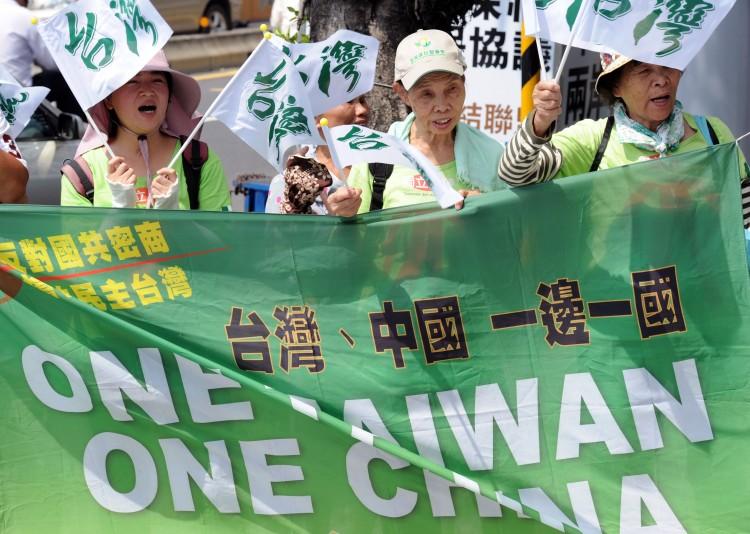Taiwanese people have a poor impression of mainland Chinese people, the Chinese government, its human rights and the increased diplomatic and economic relations between Taiwan and China, according to a cross-strait relationship’s annual survey report conducted by Taiwan’s United Daily News (UDN).
With the opening of the “three direct links”: direct postal, transportation, and trade links between China and Taiwan, civilian, economic and diplomatic exchanges have become more frequent over the last few years. But this hasn’t much contributed to a better impression of mainland China, the study says.
More than half of the Taiwanese participants in the survey (55 percent) think that officials in mainland China are autocratic, high-handed, undemocratic, corrupt, and dictatorial. Many Taiwanese think that the Chinese Communist Party (CCP) needs to substantially improve on human rights and freedom.
The general impression of mainland Chinese people is also not favorable, although 10 percent better than that of Chinese officials. The behavior of mainland Chinese people is seen as rude, overbearing, mercenary, nouveau riche and arrogant by 48 percent of the participants in the survey.
Diplomatic relations between China and Taiwan are under increasing strain, or in a highly competitive state, according to 47 percent of the participants. Only 15 percent thinks the cross-strait diplomatic war has cooled down.
With regard to work. Currently, the number of Taiwanese people, aged between 40 and 49 years, willing to work in mainland China has decreased from 33 percent last year to 26 percent this year.
Young Workers
Forty percent of young Taiwanese, aged between 20 and 29 years, are willing to work, mostly in higher echelon jobs, in mainland China.
“This trend of younger generations more willing to go to the mainland to find employment opportunities reflects the cross-strait economic growth and decline on the one hand, and on the other hand shows the magnet effect of the economy of the mainland changing from absorbing investment from Taiwan to absorbing high-level human resources,” says former Taiwan Democratic Progressive Party’s legislator Kuo Ju-Lian in a UDN article.
The increased trade links between China and Taiwan are seen as an increase of “competition” by 38 percent of the Taiwanese, “both competitive and mutually beneficial” by 29 percent, and as “mostly mutually beneficial,” by 25 percent.
Increased wages, environmental restrictions, and land use restrictions in coastal provinces of mainland China has forced many Taiwan enterprises to relocate inland or move to Southeast Asia says Kuo Ju-Lian.
“It’s impractical to expect or rely on China transferring profits to rescue Taiwan’s economy. The only way to rescue Taiwan is that Taiwan must strive to upgrade itself,” says Kuo Ju-Lian.
Read original Chinese article.
The Epoch Times publishes in 35 countries and in 19 languages. Subscribe to our e-newsletter.
Click www.ept.ms/ccp-crisis to read about the most recent developments in the ongoing crisis within the Chinese communist regime. In this special topic, we provide readers with the necessary context to understand the situation. Get the RSS feed. Who are the Major Players? ![]()



